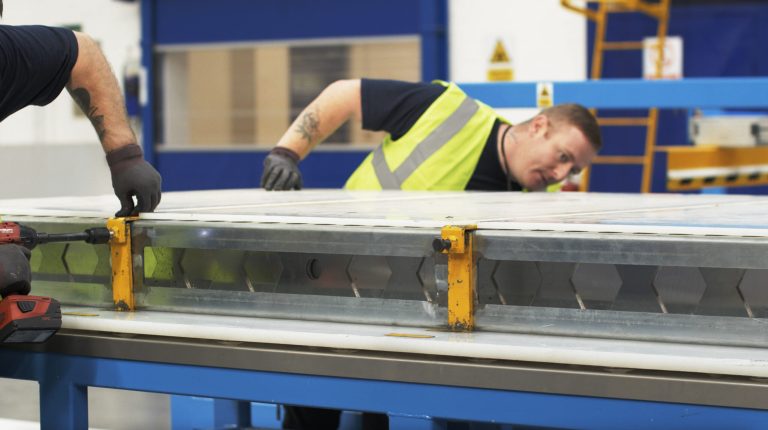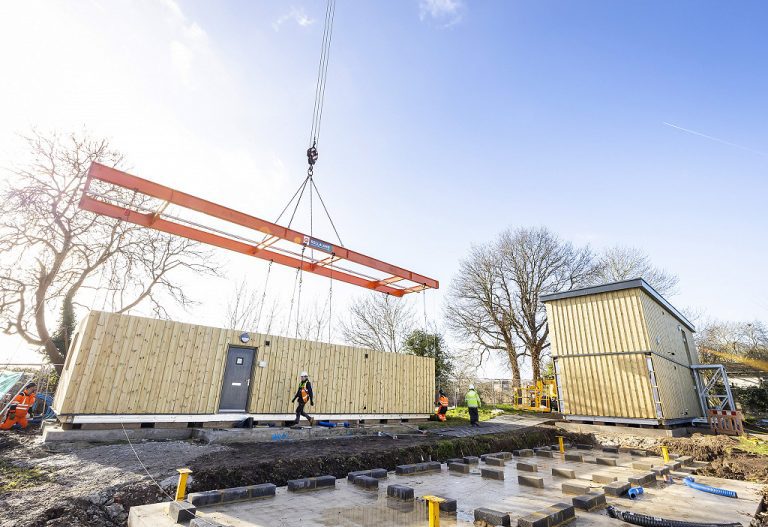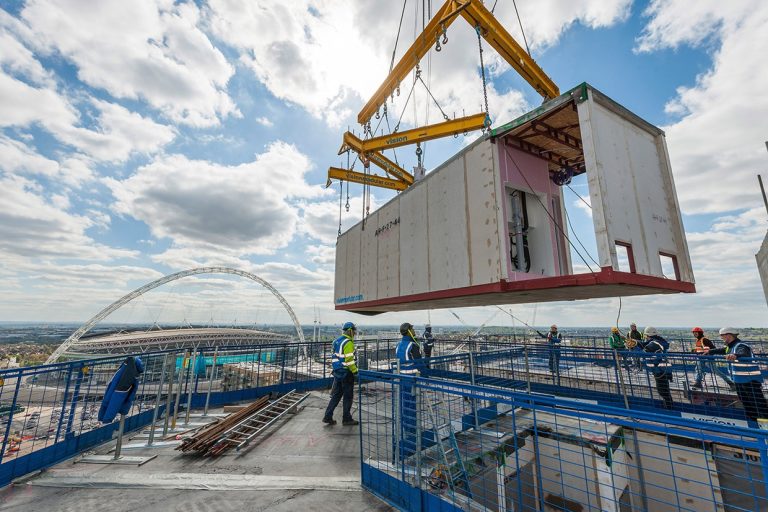Modular off-site construction methods hold potential to solve the UK’s crippling housing shortage, according to a report by the Institution of Mechanical Engineers (IME). The report, entitled “The UK House Building: Manufacturing Affordable Quality Homes” is urging the Government to provide greater incentives for the offsite construction of homes. Lead Author of the report and Fellow of the Institution of Mechanical Engineers, Dr Tim Fox said “The UK is in the middle of an acute housing crisis. Current annual construction levels are typically less than half of the estimated 250,000 new homes this country needs built every year through to at least the 2030s. The new Government needs to demonstrate real ambition, leadership and innovation, not make small piecemeal changes, if it is going to solve the UK’s housing crisis. Overhauling the way the UK constructs homes could be the quickest and most effective way of doing this.” Off-site construction technologies have advanced greatly in recent years and can offer shorter build times, better quality, better energy efficiency, less waste, and lower costs for buyers. “I’ve always believed there must be a way to get better quality and build quicker,” says Tom Bloxham, chief executive of Urban Splash While timeframes are project dependent, most estimates are that off-site-built homes can be produced in about half the time of traditional construction as the house itself can be built in the factory while foundations are being laid on site. Developers also cite the reduced requirement for scarce skilled labour, fewer construction accidents and more consistent quality of build compared to traditional construction. So is now the time for off-site construction to hit the mainstream? Bloxham thinks so, saying production line precision means his homes are both “extraordinarily” airtight, which improves their energy efficiency, and highly customisable. With his 43-home scheme in New Islington, Manchester, all sold and occupied, he is now aiming to ramp up production to several thousand a year. “We’ve shown there’s a demand for it, we’ve shown the quality is really good, and now it’s building the capacity,” he says. This will be discussed in greater detail by James Walsh, Lead Designer, Anyo Architects at Explore Offsite Housing – he will be speaking about ‘Modular Design: How to use modular techniques to solve the housing shortage.’ James Walsh will be joined at Explore Offsite Housing by an outstanding speaker line-up that includes: Brian Ham, Executive Director of Development, Home Group; Jenny Coombs, Project Director, Local Partnerships ; Paul Williamson Managing Director: Modular Construction, Swan Housing; Peter Andrew, Deputy Chairman, Home Builders Federation; Stephen Haigh Chief Executive, Live Verde; Sir Edward Lister, Chair, Homes England; Bjorn Conway, Chief Executive Officer, Ilke Homes and more. For the full list of speakers go to: http://www.exploreoffsite.co.uk/2018-events/explore-offsite-housing/conference-speakers/ Explore Offsite provides positive return-on-investment and are some of the most well-attended events dedicated to the offsite manufacturing and construction industry. Why should you Exhibit? Strengthen your brand positioning, generate sales leads, build relationships with prospects, advance the sales cycle, increase awareness, generate publicity and many more! For more information on package prices click here Alternatively, contact Julie Richards on 01743 290001 or email julie.richards@radar-communications.co.uk. Tickets cost just £225 + vat for a two-day ticket and £125 + vat for a one day ticket. This ticket price includes entry into the conference and exhibition, lunch and refreshments. Book your place online today: http://www.exploreoffsite.co.uk/book







